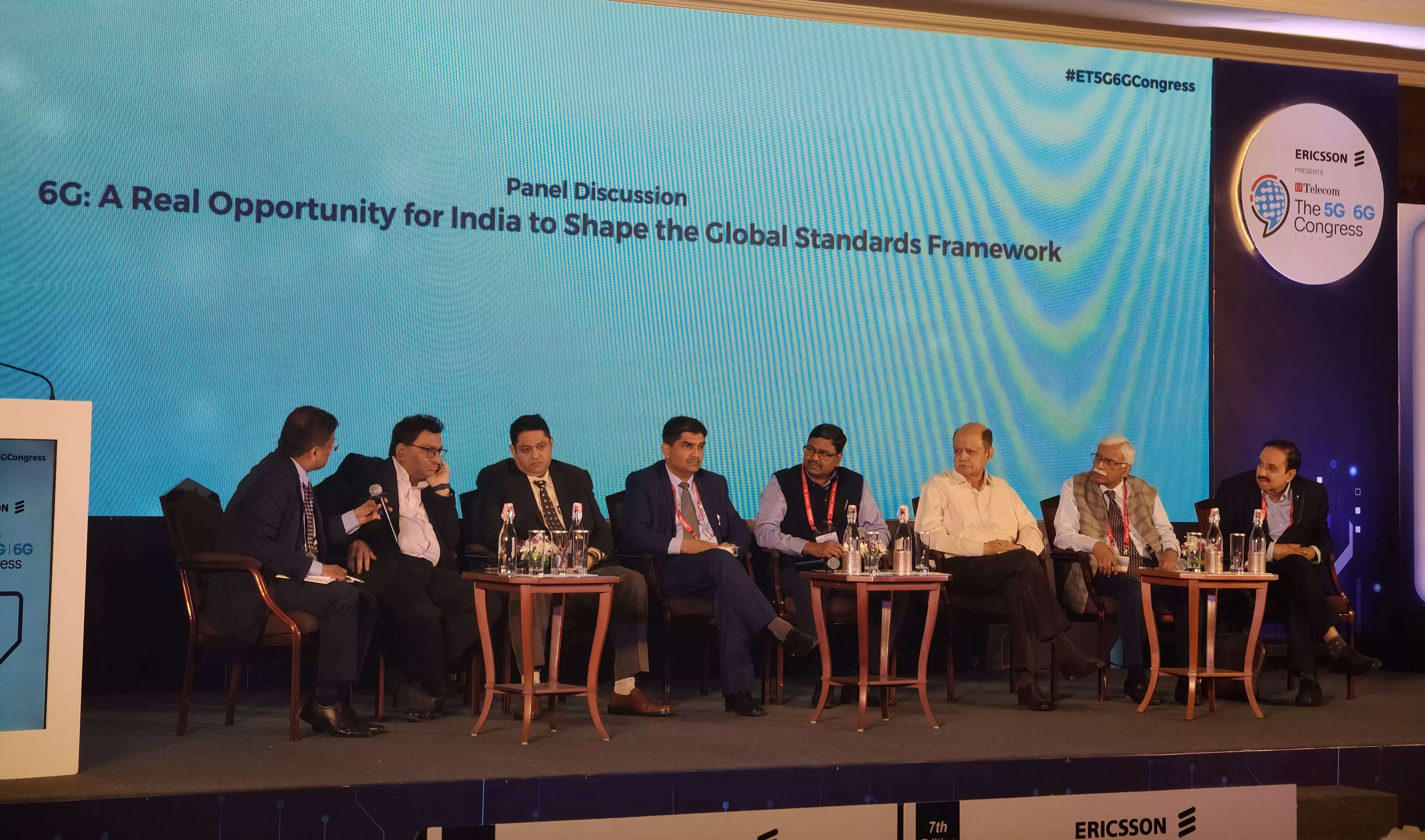
NEW DELHI: An early start on research and development of next-generation network standards will enable India to lead the global 6G revolution, according to leading Indian telecom operators Reliance Jio and Bharti Airtel.
Airtel Chief Regulatory Officer Rahul Vats said that while the industry gears up to contribute to the advancement of 6G technology, it is also appropriate to focus on monetizing 5G mobile networks.
“I think we should focus our energy on standardization and R&D to lead the next revolution. At the same time, we should take the opportunity to monetize what you (telcos) are working on (5G). It’s important to create,” Vats said.
Ravi Gandhi, chief regulatory officer, Reliance Jio, said India, in contrast, has been slow to contribute to the development of 5G technology, but the time is right to shape the contours of 6G.
“The 5G standard was rolled out from 2016 to 2018. 5G will be available in 2024. So it took seven or eight years. If we want to get to 6G by 2030, now is the time to standardize. “It’s time,” he said. “India is taking the lead. Several points have already been introduced in the form of ubiquity and sustainability, two things that will be critical to the success of the standard.” I guess.”
The executives were speaking at a panel discussion on ‘6G: A real opportunity for India to shape the global standard framework’ at the recently concluded ETTelecom 5G|6G Congress 2024.
“Instead of putting all your resources on the user device, you can put them on the network and do high-speed computing there. All the intelligence can move up in the network, so you can use AI (artificial intelligence) and machine learning. It will help in increasing adoption and reduce the cost of consumer devices,” said a Jio executive.
Airtel expects the 6G standard to be completed by 2029 and said there is a long way to go for the emergence of the 6th generation ecosystem. “The paperwork will be submitted, the testbed will be created, the chip will be created, the hardware will be created. Eventually, we will get to the point where we can start commercial deployment,” Vats said.
Prime Minister Narendra Modi’s government is ambitiously working on 6G technology to enable India to play a key role in global standardization and research and development.
In particular, the Department of Telecommunications (DoT)’s 6G standardization efforts have succeeded in adopting ubiquitous connectivity, ubiquitous intelligence, and sustainability as key elements of 6G technology.
India’s 6G Vision aims to deploy 6G technology in the country by 2030.
“I see 5G as a precursor to 6G. The policies and frameworks that are emerging with 5G will carry over into 6G, where the focus will be more on applications and how to monetize them. India (COAI).
“I can say that we are in the right space and the right place. We are looking at standardization. This is a huge opportunity…From now on, we will not be buyers of technology, but significant contributors to technology. That is the opportunity that 6G presents,” said Anil Kumar Bhardwaj, DDG, Ministry of Telecommunications.
According to D. Porpathasekaran, Technical Director, Telecom Consultants India Limited (TCIL), once 6G starts being commercially deployed, it is likely to benefit healthcare, education, manufacturing and other sectors.
“As far as national standards are concerned, India is contributing positively…On the regulatory side, should there be light regulation or should it be a kind of strict regulatory oversight?For that, we need to take calls. “There will be ‘in the next few months,'” said RK Bhatnagar, director of the Voice of Indian Telecommunications Technology Corporation (Voice).
“Academia and industry have always been either a little ahead of the game or a lot behind. The fact that 6G is about six years away, and we’re already worried about it, That fact is good because I don’t want to miss out this time.” Not only industry players but academia are also jumping on board with this bandwagon,” said Salim Beg, former chairman of the electronics engineering department at Aligarh Muslim University.
Amitoy Arya, partner at EY and moderator of the panel, said 6G will be a key technology that will bring extra-sensory experiences and AI-enabled connected devices. “India, with a population of 1.4 billion, is one of the youngest countries in the world. Per capita income is increasing day by day and this has brought India to a place where the whole world is watching.”




